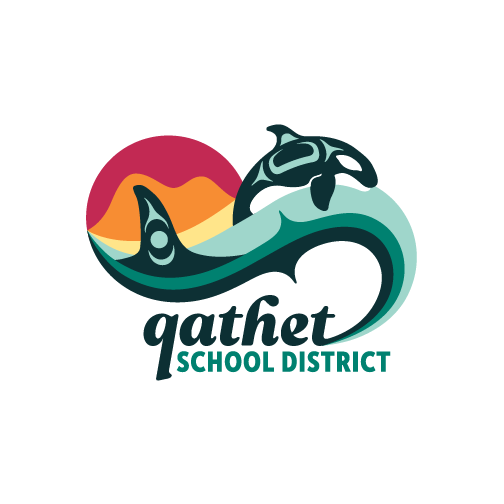Edgehill Elementary Students Lead Sustainability Project with Support from WWF-Canada and qathet School District Grants
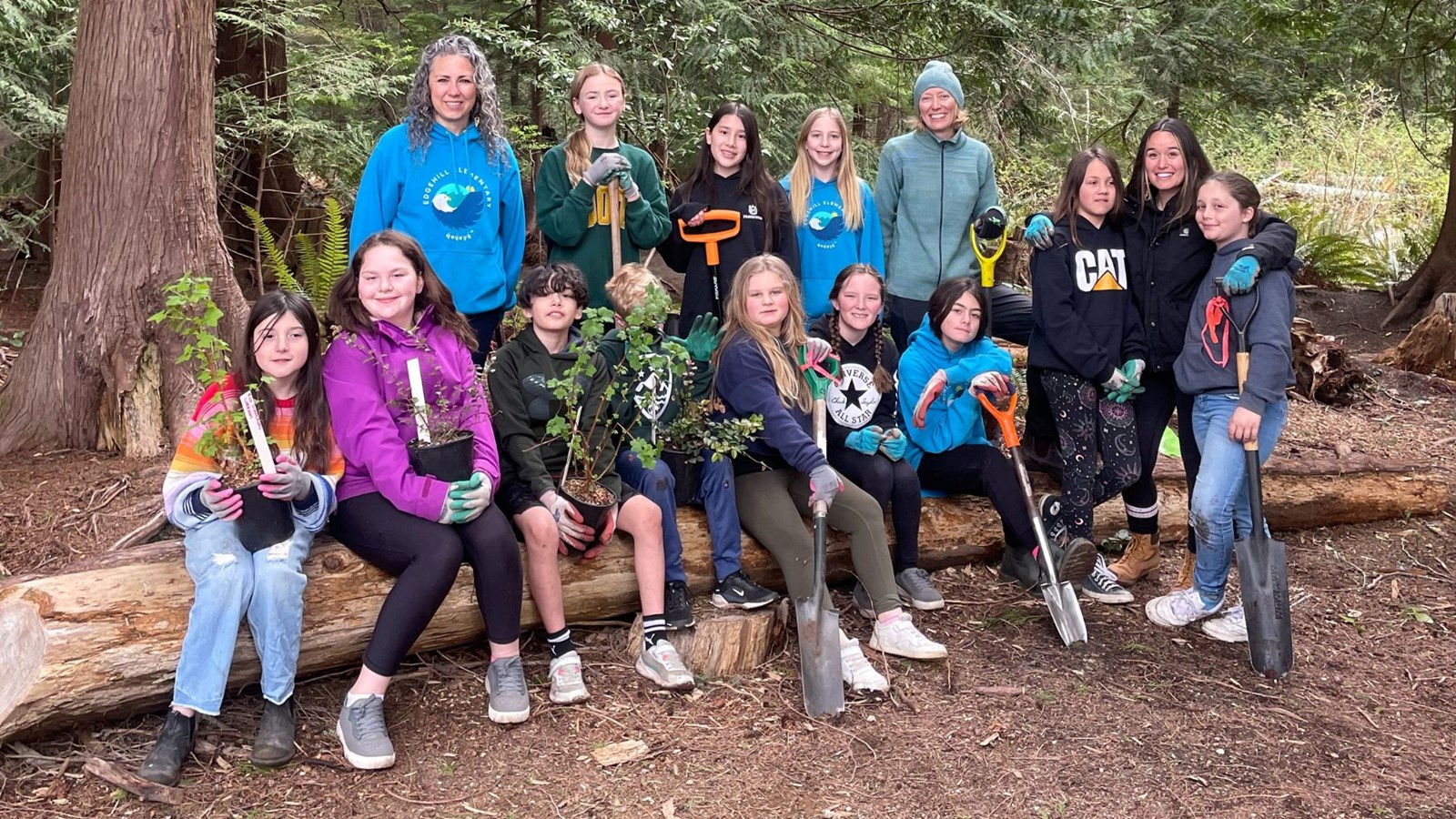
Grade 4 teacher at Edgehill Elementary, Francine Ulmer, championed and successfully received two separate grants — one from World Wildlife Fund Canada (WWF-Canada) and another from the qathet School District Environmental Initiatives Fund — to support a school-wide sustainability project focused on revegetating their outdoor classroom and advancing their efforts to achieve EcoSchools certification, which recognizes environmental excellence in elementary and secondary schools across Canada.
On April 14th, students in Grades 4-7 at Edgehill Elementary collaborated with Brooks students who are Eco-school mentors to revegetate an outdoor classroom with native plants. Planting was the first phase of the project and in preparation for the day, Brooks students, along with their teacher, Graham Cocksedge, visited the outdoor classroom several times in advance to help remove invasive ivy, laurel, and blackberry — leaving the planting in the hands of the elementary students. Installed trees and plants included mock orange, evergreen huckleberry, red flowering currant, red osier dogwood, nootka rose, saskatoon berry, salal, western trumpet honeysuckle, kinnikinnick, false lily of the valley, vine maple, douglas maple, false solomon’s seal, and the bleeding heart. Many of these native plants hold deep cultural significance to Coast Salish peoples, and students will now have the opportunity to learn about them firsthand by watching them grow in their school’s backyard. They will also learn about the plants’ traditional uses through visits from Tla’amin Nation knowledge keepers, who will generously share their teachings in the upcoming weeks as an Earth Month activity aimed at connecting students to their place.
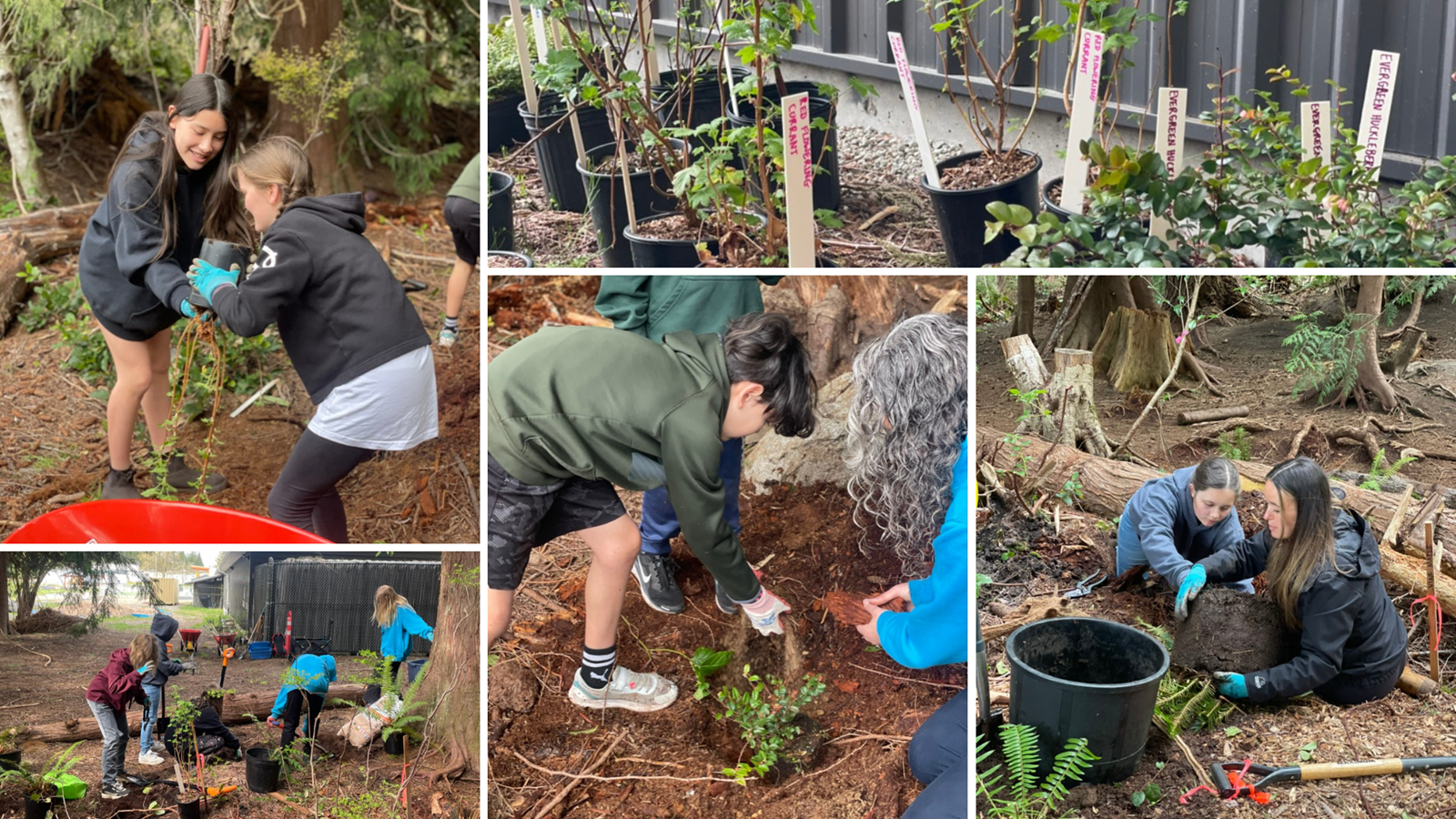
Next month, the project continues with the installation of a pollinator garden, involving seed starting and butterfly raising activities led by the primary students. Then in June, the Edgehill Eco-team, made up of students from Grades 4-7, will create signs and field guides featuring ʔayʔajuθəm words and traditional ecological knowledge to support learning and promote deeper connections to the landscape.
All proposed projects were assessed by a panel of WWF-Canada staff based on quality and relevance, impact, sustainability, implementation, budget, storytelling, and connections to Indigenous communities. Congratulations to Edgehill Elementary on being a successful recipient and leading an initiative that gives back to the land while engaging students of all grades in the school’s eco initiatives.
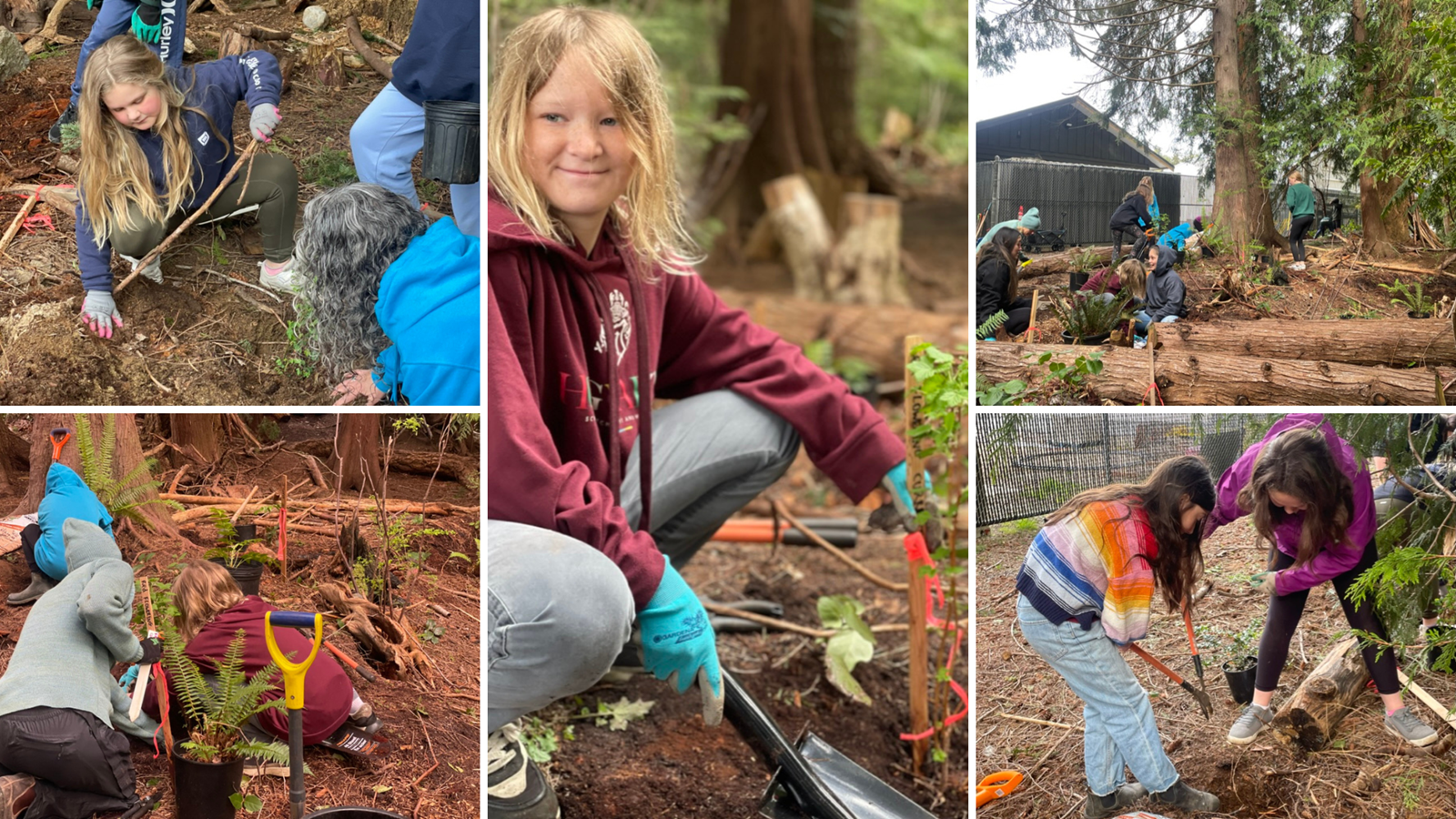
This project was specifically developed to connect Edgehill to the work supported by qSD’s Outdoor Learning Initiatives and Coordinator, and the Education Pillar of the Environmental Stewardship and Sustainability Plan. It also provides a meaningful collaboration opportunity for elementary and secondary students to learn together through mentorship – truly embodying qathet School District’s vision of “learning and growing, together”.
Watch a short video from the planting day here!
To read qSD’s full Environmental Stewardship and Sustainability Plan, click here.
More About the Grant Received from WWF-Canada
The $1,500 WWF-Canada Go Wild Grant supports student-led initiatives aimed at protecting and restoring nature in schoolyards, campuses, and local communities. According to a WWFCanada press release, this year’s projects include creating pollinator habitats, using native plants to manage stormwater and reduce flooding, and starting seed orchards to grow and share seeds that expand wildlife habitat. These planting pro-jects empower students to support wildlife and address climate impacts, thanks to WWF-Canada’s Go Wild Grants, delivered in partnership with the Barrett Family Foundation.
Go Wild Grants support school communities in exploring and learning about their local ecosystems including their history, biodiversity, how they function, and what they need to thrive. Through hands-on projects, students have the opportunity to protect or restore habitats, connect with nature and their communities, and develop important skills such as research, planning, budgeting, leadership, and teamwork. The program is part of WWF-Canada’s 10-year Regenerate Canada initiative, which aims to restore one million hectares of natural habitat by 2030.
Read WWF-Canada’s full press release here: https://wwf.ca/media-releases/sixty-schools-and-campuses-set-to-go-wild-with-wwf-canada-grants-to-create-and-restore-wildlife-habitat/
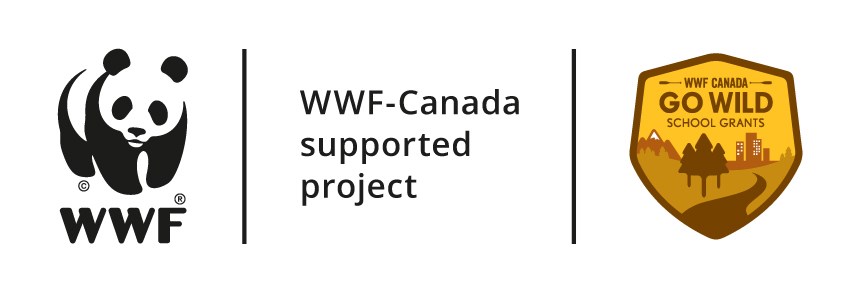
We gratefully acknowledge the support of WWF-Canada.
